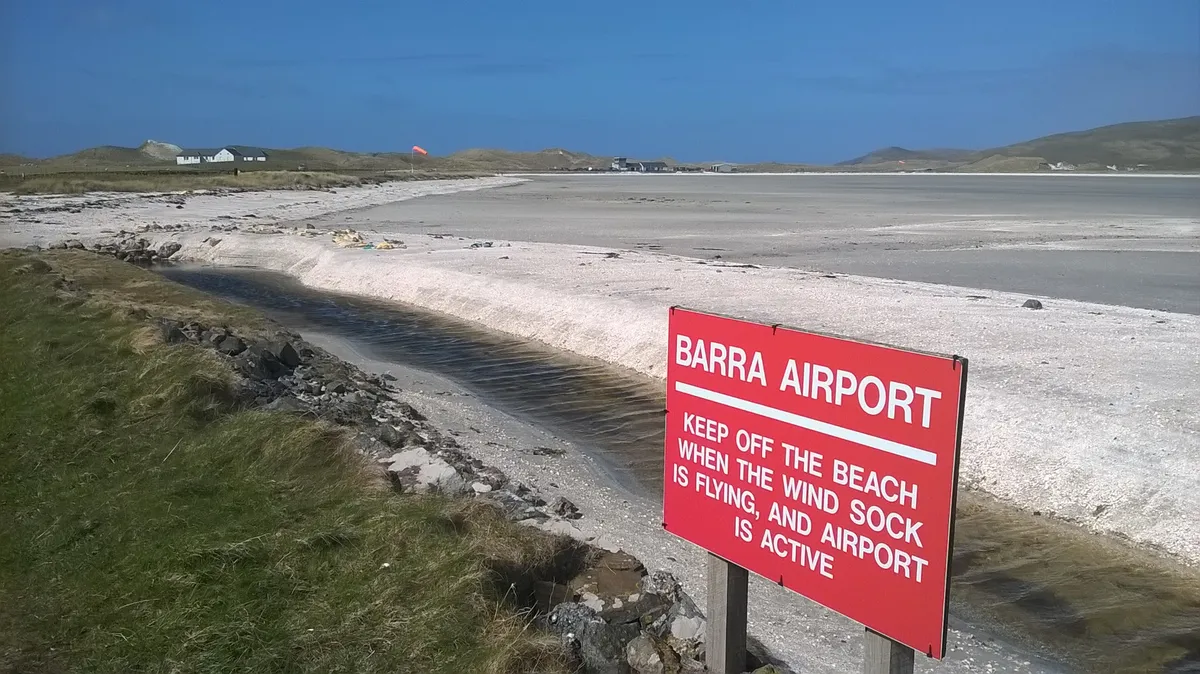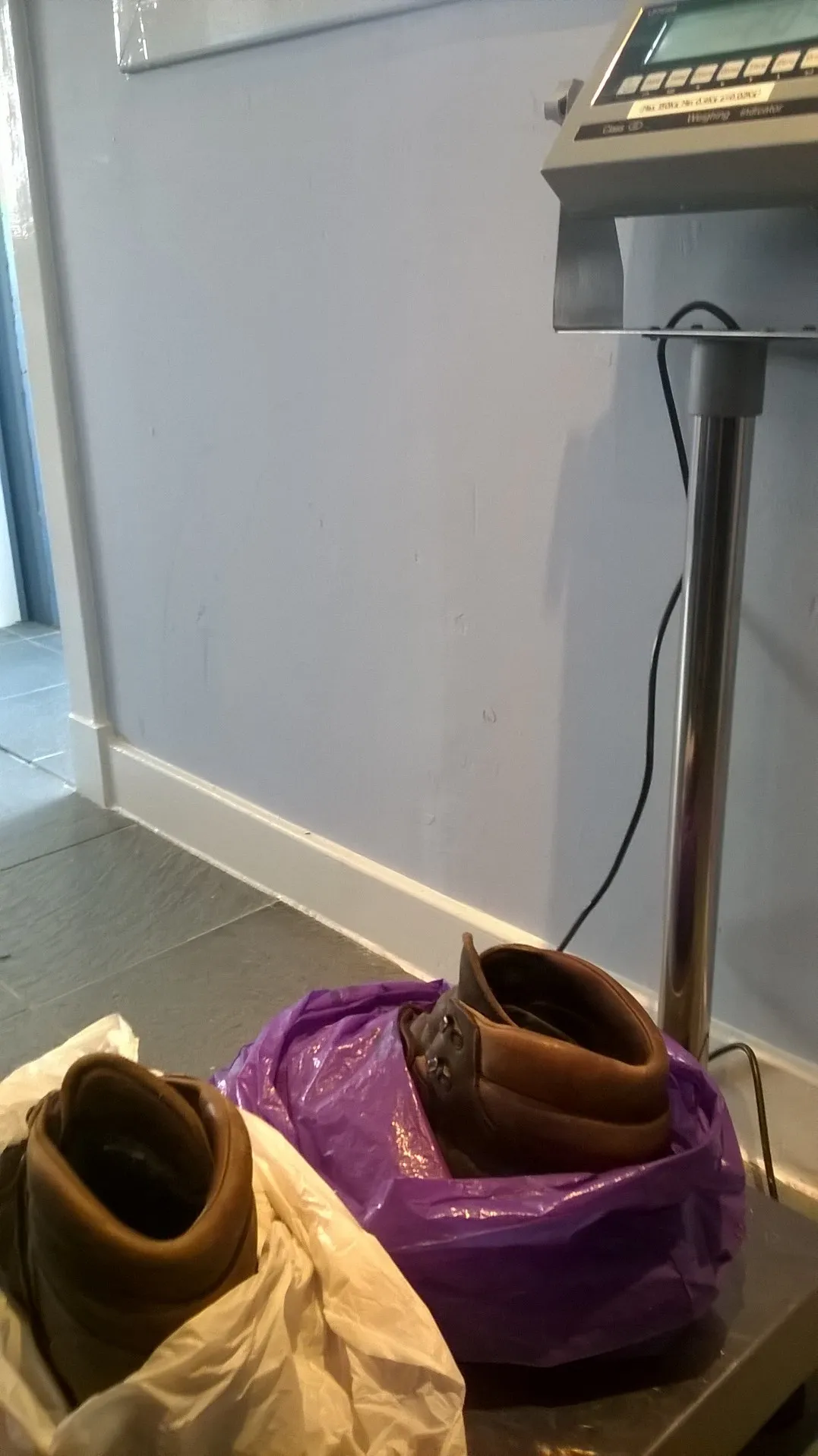The sun was shining and, like a theatre curtain drawing aside to reveal the stage, the sea had retreated to expose the vast sands of Tràigh Mhòr on the northern edge of Barra. The main act, the world's only scheduled beach landing by a commercial aircraft, was due. In fact, it was overdue.

I'd spent three weeks on the southern islands of the Outer Hebrides researching a guidebook. Now, laden with outdoor gear, cameras, notebooks and a large fillet of salmon, I was keen to get home. A doughty Twin Otter wobbles its way twice daily between Barra and Glasgow.
I was on the second flight but, due to what airlines always coyly describe as "a technical issue", the first flight had not even arrived. The second flight was clearly going to be so late that I would miss my connection to Bristol. A night in Glasgow airport beckoned.
'Oh I wish you'd got here five minutes earlier, there was a seat free then,' said Loganair's check-in attendant. We went through the standard routine: was space likely to emerge; could she ask passengers booked on the first flight if they would mind switching to the second; might the second fight make up time? No, no and no. The tear-jerking scenario of crestfallen children mewing softly into their pillows that night as daddy failed to materialise failed to cut it.
I slunk back to my table, consoling myself with a slice of home-made carrot cake and a cappuccino from what cafe manager Sharon Cox heralded as "Barra's only espresso machine made in Birmingham." Barra airport does things differently and despite my predicament I was rather liking the place. Something would turn up, I felt.
And so it proved. The lady from Loganair saved the day: "I have a plan," said her voice at my elbow. "I called the pilot" - called the pilot! - "he thinks he can get you on the flight but your baggage must not exceed 20kg." Even before I thumped my suitcase on the scales I intuitively knew it weighed 21.1 kg.
Our lady of Loganair sighed. She was on a mission. She wanted me to catch the flight. Was there anything disposable in there? she inquired.
"Well," I replied, "I have this salmon."
I should point out that this was not any old salmon. I'd purchased it from Barratlantic, Barra's leading - only - fish factory. In a part of the world where all salmon is glorious, Barratlantic's is head, shoulders and gills above the competition.
We placed the smoked carcass reverentially on the scales: at 1.5kg a solution was at hand. While I was reluctant to part with it but faced with a plastic seat for a bed in Glasgow airport, I opted for the heroic. I would eat the salmon.
"You can't eat a whole salmon," pointed out my guardian from Loganair. "No-one can eat a whole salmon." Let's offer it around then, I suggested. The proposal was enthusiastically received.
We borrowed a carving knife from the cafe but as I set to slicing up the beast, a voice of reason piped up from the nearest table. "If we eat the salmon, are we not then collectively 1.5kg heavier? We're not solving your weight issue, just sharing the problem." Heads nodded. A dozen pairs of eyes stared balefully at the salmon as puppies at a bone tossed out by a butcher.
"How about your boots?" suggested Loganair's heroine. "They look like they've had their time." She had a point: they had been restitched together so often that none of the original fuselage remained. Only one of them was laced, the other held in place by a cocktail of soil from several geological eras.

Naturally I took the view they had a good 10 years left in them but, weighing in at 3kg, they were heavy enough for me to get home. I said a quiet goodbye to them and placed them in a bin. Problem solved. Though I couldn't help noticing how a couple of passengers were still looking shiftily at my salmon.
We weren't done yet. An even happier ending emerged. I was to return home not just with salmon but my boots. Our Loganair lady again: "I just had another chat with the captain. His routing takes him around the island because of the winds so he's burnt off an extra couple of kilos of fuel. You can take your boots."
We took off, bouncing down the beach past cockle pickers and startled oystercatchers, salmon and boots tucked in the hold. The aviation industry collectively marshals its forces to strip out every strand of humanity from our travel experiences; briefly I had dipped into a parallel and rather life-affirming universe.
The Outer Hebrides by Mark Rowe is published by Bradt next April.
